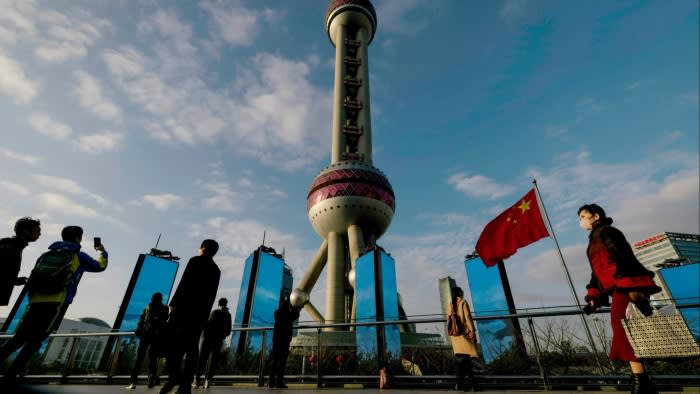Unlock the Editor’s Digest for free
The writer advises financial institutions on asset allocation and is founder of The Practical History of Financial Markets course
The world’s second-largest economy is about to move to monetary independence and in so doing it will destroy the current international monetary system. China needs to not just reflate its economy but to inflate away its debts. The country has one of the highest total non-financial debt-to-GDP ratios of any major economy, at 311 per cent of gross domestic product. While the debt burdens of most countries are shrinking relative to output, thanks to high nominal GDP growth and the falling price of debt securities, China continues to report rising debt-to-GDP.
On the eve of the global financial crisis in December 2007, China’s total non-financial debts amounted to just 142 per cent of GDP. The exchange rate targeting regime, by restricting the growth in money relative to the growth in total debt, pushed China to ever-higher debt-to-GDP levels that have finally brought it to the verge of a debt deflation. The time has come for the Chinese authorities to take the monetary levers to generate higher nominal GDP growth. This means allowing the exchange rate to adjust to the level of broad money growth necessary to reduce China’s burden. The current international monetary system ends when China assumes this full monetary independence.
Recent comments by President Xi Jinping that the People’s Bank of China (PBoC) should launch a bond-buying programme to create more domestic liquidity may be the first sign that exchange rate targeting is slipping down the policy agenda. PBoC action to accelerate the growth rate of broad money and generate higher growth in nominal GDP is not compatible with a stable exchange rate, especially in an era when trade and capital flows are shifting away from China as part of US ‘friendshoring.’ It is time for China to find a different and fully autonomous monetary policy.
Since 1994, China has intervened to prevent the appreciation of its exchange rate particularly in relation to the US dollar. It was joined in this monetary policy approach by most of Asia in 1998. This intervention funded the purchase of developed world government debt securities, primarily US Treasuries, through the creation of local currency bank reserves. This forced buying, regardless of price, effectively decoupled the risk free rate from the nominal growth rate in the developed world.

The global monetary system created a persistent and artificially large gap between nominal growth rates and the discount rate, thus inflating asset prices and facilitating a rise in gearing. Developed world savers were partially freed from funding their own governments and turned instead to funding the private sector and pushing asset prices higher. The valuation of US equities, as measured by the Shiller price/earnings ratio, moved to a higher plateau under this monetary system and both private and public sector gearing rose to new highs relative to GDP.
The excess domestic liquidity created by PBoC foreign exchange intervention was channelled by the Chinese state banking system to fund investment and higher production at the expense of consumption. This state capitalism reduced the role that excess liquidity played in pushing up domestic prices and making China less globally competitive. In this way, China’s external surplus endured for much longer than it would have in a market system. Developed world central bankers adjusted their own monetary policy to fit the global inflation dynamics increasingly determined by China. The Chinese Communist party created a fulcrum, and inflation-targeting central bankers created a “lever long enough”, through interest rate policy and the extension of their own balance sheets, to “move the world”.
While the decline in the renminbi exchange rate, in reaction to much higher growth in currency supply, raises the spectre of exported deflation, the rest of the world is very unlikely to permit China to take an even larger share of global trade. The most likely reaction is the imposition of tariffs and a clearer drawing of a line between countries aligned with China and those who see their allegiances elsewhere. The loss of access to Chinese productive capacity brings with it higher global inflation.
Developed world authorities are already being drawn into greater interventionism to ensure that the gross imbalances of the old monetary system (primarily excessive debt levels), are unwound with minimal sociopolitical dislocation. Such interventionism is taking us back to the system known as financial repression that reduced excessive debt levels in the aftermath of the second world war. This new global monetary system brings radical challenges for investors which they are ill equipped to navigate without a deep understanding of financial history.
Also Read More: World News | Entertainment News | Celebrity News







